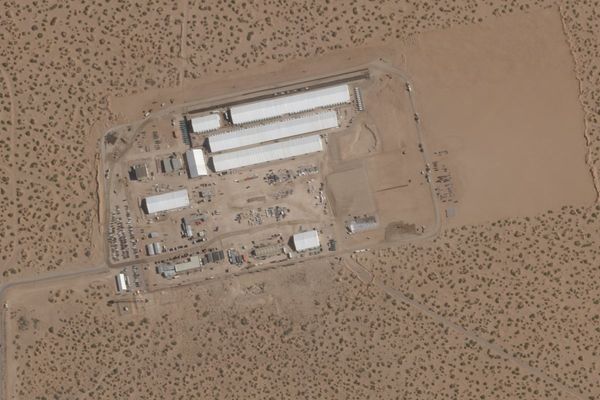A program tracking "real-time" data is to be implemented in the Northern Territory as frontline organisations report a spike in serious alcohol-related injuries following the end of long-term liquor bans in hundreds of living areas.
The Northern Territory and federal governments have agreed to work with community-based organisations to assess key measures including emergency department presentations at hospitals, and rates of police arrests and child removals.
There is particular concern around the Central Australian town of Alice Springs, which is used by the dozens of surrounding town camps, remote communities and outstations as a hub for services and supplies.
Federal Minister for Indigenous Australians Linda Burney described the situation facing the region as "very dire".
She said several organisations had sounded the alarm over the "very real issue" of domestic violence, which they were concerned could become "much worse".
"We're working very hard at the moment to try and put in place real-time data so that we actually know precisely what's going on and not responding to hearsay," she said.
Ms Burney said her government would assess the data and provide support as required, but emphasised the alcohol bans — introduced in 2007 as part of the NT Intervention and carried on under Stronger Futures legislation — would not be returning.
"Stronger Futures finishing on July 16 was not a secret," she said.
"The previous government knew well in advance of when this was going to cease and did nothing about in terms of transition, in terms of putting in the sorts of supports that we've we've announced for Alice Springs.
"I don't have any intention of bringing back an Intervention-style arrangement that saw Stronger Futures put in place.
"What I'm interested in is working with the NT government, working with community-based organisations ... to make sure that the supports that are needed to deal with this situation are in place."
Lhere Artepe Enterprises runs three IGA stores in Alice Springs, each with an attached liquor store.
Chairman Peter Holden said alcohol sales were still at higher levels than average more than a month after the bans ended, but had not returned to the extraordinary levels recorded in the week after restrictions lifted.
"The legal environment has changed, and that's had the effect of increasing demand for alcohol in the region," he said.
He said a cap introduced by the NT government in 2018, which limits a supermarket's liquor sales to 25 per cent of overall revenue, was now too difficult to comply with.
"It's kind of galling that nothing we've done has changed this," he said.
"We've still been doing what we've been doing for the last three years to control the sale of liquor, but the rules of the game seem to have changed and we don't seem to be able to get the sales down to where they were a couple of months ago."
Mr Holden said there needed to be a broader effort to reduce demand for alcohol in Australia, pointing to lessons that could be drawn from the government's approach to the tobacco industry.
Northern Territory Chief Minister Natasha Fyles said the legislative changes that came into effect in July opened up the conversation around data monitoring, but alcohol policy has been a top focus since Labor came to power in 2016.
"It's a space that we will continually have to work in," she said.
"In terms of real-time data, we have a number of sources of information, but there is some lag in that.
"[We're looking at) how we can we have information that can guide us in decisions and what might be happening in our community, but not over-complicate it to the point where we don't get the information we need."
Ms Fyles said the project was still in its early stages but offered assurances the data would cover a wide range of areas.
"We'll be getting information out of the emergency departments, for example, but also looking at school attendance and the factors that will allow us to understand what's happening in our community that will potentially allow us to adjust measures to keep our community safe," Ms Fyles said.
Ms Fyles said it had not yet been determined whether the data would be made public, but she appeared to support some level of information being provided to the community.







